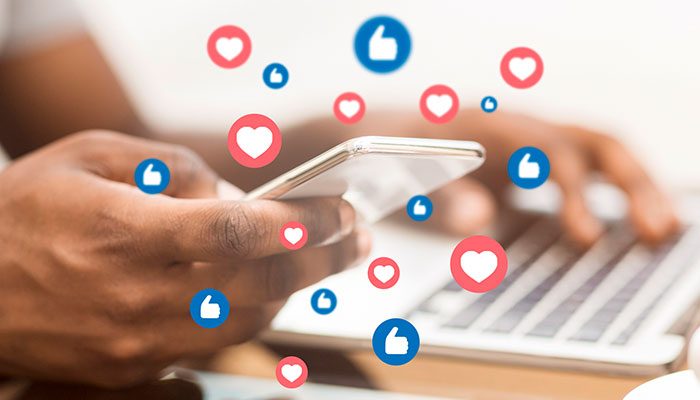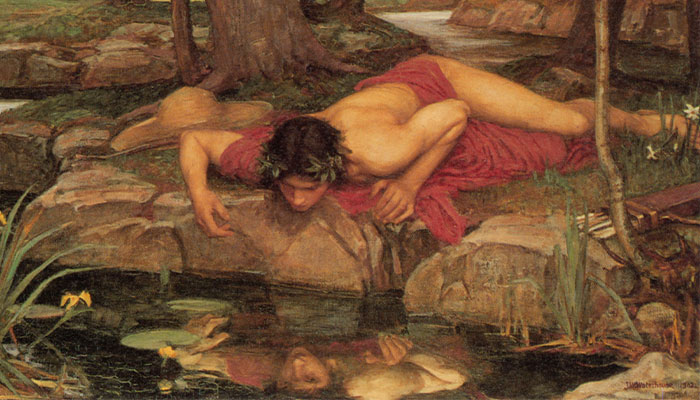Oversharing is like a digital tattoo, a good idea at the time, but not always easy to get rid of.

Too much information: Things we used to consider private are grist to the daily social media mill.
"What's on your mind?' asks Facebook every time you sign in. And the floodgates open: rants, raves, regrets, and videos of the kids, along with photos of sport injuries, beauty routines, smashed avo, and the dog bobbing for apples.
In the New World Order, friends are our audience, and posts are the new public journal. Fear of missing out (FOMO) plunges us into a world of other people's status updates, plans, and check-in locations.
Things we used to consider private are grist to the daily social media mill. It's part of the push to be seen as 'authentic'. There's new value in vulnerability and spilling your guts. It's what some are calling contagious vulnerability, and part of a new language of mental self-care.
Death of the stiff upper lip
Many oversharers assume that their main value is pleasing others with their stories and jokes, says Heather Havrilesky, an American author, essayist, and humorist who writes the advice column 'Ask Polly' for New York magazine.
"I've suffered from this affliction for decades," she declares. "Oversharing was always my opening gambit and my parting shot … my warm-up calisthenics and my social cool-down. Oversharing, for me, lived at the red-hot centre of any good friendship: You tell me way too much about yourself and everyone else you know, and I do the same."
In the covert narcissist a certain vulnerability goes with the sense of self. They think they are better than the next person, but are not as sure of themselves.
For many, the number of likes, comments and followers that derive from social media sharing is a measure of influence and importance. It can dictate the day's mood.
The stiff upper lip is a thing of the past, and rightly so. Mental health issues and conditions like post-traumatic stress disorder suggest that the stiff upper lip is not a functional model; people do need to be honest about their vulnerability to heal.
Australia's R U OK? suicide prevention campaign, for example, is about trying to get people to talk honestly about their mental health.
The oversharing tipping point
So where does vulnerability end and narcissism begin?

Self fixation: The Greek myth of Narcissus, who falls in love with his own reflection, is the origin of the term narcissism.
Narcissism generally refers to having an inflated sense of self-importance. A narcissist generally lacks empathy, intimacy and feels an abundance of entitlement.
There is an important distinction to make between overt and covert narcissism. An overt narcissist is the person who thinks he or she is better than everybody else, who has a grandiose sense of self and is not afraid to show it.
In the covert narcissist a certain vulnerability goes with the sense of self. They think they are better than the next person, feel entitled, but are not as sure of themselves. It's a narcissism that can stay hidden and breed resentment.
In the late 1970s, American historian Christopher Lasch wrote about the developing culture of narcissism in the United States, the rise of entitlement and of celebrity. The desire to be famous for the sake of being famous without much achievement behind it, he noted, was becoming more and more the norm.
Let's talk about me
Said Lasch: "Thriving on the adulation of the masses, these celebrities set the tone of public life and of private life as well… The beautiful people … live out the fantasy of narcissistic success, which consists of nothing more substantial than a wish to be vastly admired, not for one's accomplishments but simply for oneself, uncritically and without reservation."

Check us out: Selfies arrived with the technology that enabled them, making them a subcultural norm, says Associate Professor Boag.
This kind of social invasion of narcissism, especially in the Western world, has intrigued researchers for the past few decades, and studies by people like Jean M. Twenge and W. Keith Campbell have shown that every decade there has been an apparent increase in narcissism.
A meta-analysis by Liu and Baumeister in 2016 found higher levels of narcissism were linked to all social networking activities – posting, status updates, interacting, how many 'friends' we had.
A study found that the risk of oversharing in conversation – or providing a listener with too much irrelevant detail – increased with age.
People often point to selfies as having a narcissistic element but really they are a subcultural norm today. They arrived with the technology that enabled them.
Oversharing is not exclusively the domain of digital natives. A study by researchers from the University of Edinburgh and Northwestern University in Illinois found that the risk of oversharing in conversation -- or providing a listener with too much irrelevant detail – increased with age.
A changing sense of self
The sense of self in Western societies today is probably different from what it was 100, 500, 1000 years ago. The selves we are in modern societies adapts to new technologies, norms, situations and challenges.
There are different conceptions of self, too, depending on where you live in the world. There is a distinction made between individualistic cultures (like the United States) and collectivistic cultures (Japan, for example).
In individualistic cultures how you are is down to you and not so much your connections. With collectivist senses of self, people are more bound to their place in society, a social group, or family; it's more of a network.
Oversharing doesn't have to be negative. There can be positive outcomes. People make connections, feel a greater sense of authenticity, and establish a digital community that is important to them.
The other side of the coin, of course, is rejection, the malevolence of trolls, consequences, post-post anxiety … and that indelible digital tattoo. It's a very complex social interaction.
Simon Boag is Associate Professor in the Department of Psychology.






